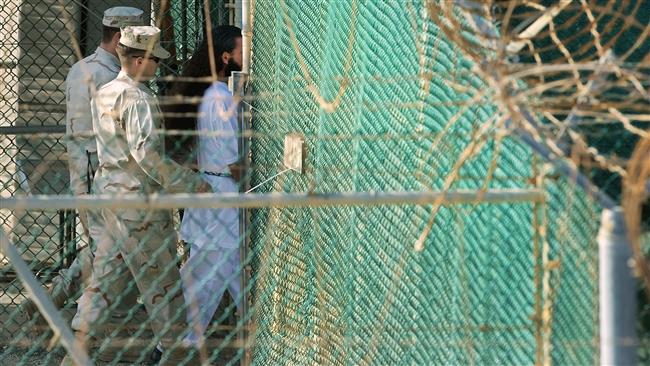
RNA - In redacted transcripts newly released by the Pentagon Periodic Review Board, Ghassan Abdallah al-Sharbi is quoted as saying that the figure used the term “your highness” during a telephone conversation just before offering to recruit him.
The revelations comes shortly after the US Congress approved a bill allowing the 9/11 victims to sue Saudi officials for their role in the attacks.
US lawmakers released 28 secret pages of a congressional investigation earlier, in which several suspicious connections were outlined between the 9/11 hijackers and the Saudi royal family; however, no definitive comment was made about the Saudi involvement.
The Periodic Review Board, tasked with assessing whether Guantanamo prisoners should be freed, released the transcript on Thursday, the Associated Press reported Saturday.
Who is al-Sharbi and what did he say?
The "religious figure" spoke to the supposedly royal family member, discussing whether al-Sharbi was qualified for “jihad,” said the prisoner, adding, "I remember, 'yes, your highness, yes your highness,' and he was talking to him about me."
The meeting was held in early 2001, after al-Sharbi had returned from Phoenix, Arizona, where he had taken flight school courses along with two other men, who later took part in the 9/11 attacks.
The Saudi, who attended Embry-Riddle Aeronautical University in Prescott, Arizona, from 1999-2000, agreed to return to the US but apparently never did for reasons untold.
He had been selected thanks to his practice on a flight simulator, which enabled him to learn to fly more easily than others.
Al-Sharbi was captured along with al-Qaeda facilitator Abu Zubaydah in a house in Pakistan, where he learned and later started teaching others how to make remote-controlled explosives.
Before that, he went to Afghanistan in the summer of 2001 where he trained with al-Qaeda.
According to a document known as File 17, declassified earlier this year, an envelope from the Saudi Embassy in Washington was found near where he was arrested that contained his flight certificate.
File 17 refers to the connection between diplomats from the Saudi kingdom and the hijackers, 17 of whom were Saudi nationals.
AP’s indications
In its reports, the AP suggested that the transcripts, parts of which were blacked out, could not be used as evidence to implicate any specific member of the Royal family, quoting a terrorism expert as calling al-Sharbi's comments as“hardly ridiculous.”
"The Saudi royal family is quite large and diverse, and it is no secret that various members were once reputed for their patronage of Islamist causes and charities," Evan Kohlmann said. "In that light, it is hardly ridiculous that al-Sharbi would have encountered a Saudi royal who sympathized with al-Qaeda and Osama Bin Laden."
The agency further described al-Sharbi's remarks as part of a “list of suggestive but hardly definitive clues” about the Saudi role in the deadly attacks that left nearly 3,000 people dead that and more than 60,000 others injured.
What’s next for al-Sharbi?
In the transcripts, al-Sharbi said he uses a "manual breathing device,” and is "really exhausted, and nauseous and lethargic.”
"He is very open that he is really struggling physically, that he's exhausted, that he has been under serious medication," said Max Abrahms, an assistant political science professor at Northeastern University who studies terrorism and reviewed the transcript. "But on the other hand it lends additional credibility to his statement because it's not very deliberate and not memorized."
The review board refused to set him free from Guantanamo in July.
111/847/C